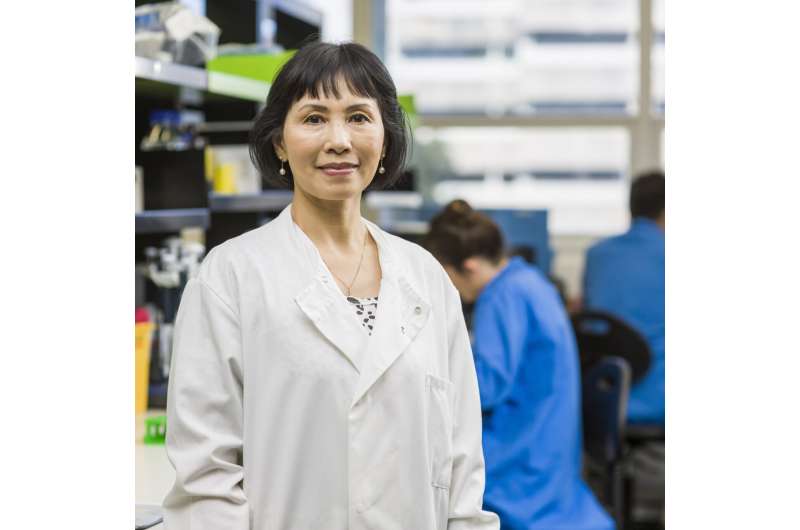Experimental brain cancer drug fast tracked in clinical trials

An experimental drug being trialed for advanced solid tumors, including the most aggressive brain cancer—glioblastoma—has passed the first phase with flying colors, raising hopes for an effective new treatment.
University of South Australia (UniSA) Professor Shudong Wang and Adelaide biotech company Aucentra Therapeutics are now recruiting up to 50 glioblastoma patients for the second phase, trialing the drug Auceliciclib.
The first phase, which started in June 2021, involved patients with glioblastoma, as well as cervical, colon, gastrointestinal, pancreatic and uterine cancers, ensuring that Auceliciclib was safe at different dosages.
In the second stage the drug's effectiveness against solid tumors will be tested.
The progress into glioblastoma treatment has been announced on the eve of World Cancer Research Day, Saturday 24 September.
"Phase one usually takes up to two years if there are any safety concerns with a new drug, but we didn't experience any issues with Auceliciclib, which is very encouraging," Prof. Wang says.
The second phase, in combination with the chemotherapy drug Temozolomide, will be focused on glioblastoma patients, whose life expectancy is very limited, with a survival time of just 12–18 months after diagnosis.
"Despite surgery, chemotherapy and radiotherapy, glioblastoma is an incurable cancer. One reason is due to late diagnosis where the tumor has already spread in a way that makes surgical removal very difficult," Prof. Wang says.
"Also, there are very few existing drugs that can cross the blood-brain barrier. The brain does an excellent job of protecting its most vital organ from toxins and pathogens. The downside is that it keeps out vital medication."
Auceliciclib has demonstrated in pre-clinical models that it can cross the blood-brain barrier, which makes it an ideal drug candidate for brain cancer.,
Worldwide, an estimated 300,000 people were diagnosed with a primary brain tumor in 2020, with very little hope of an effective treatment.
Auceliciclib has two key advantages over other drugs in development. It is more target-specific, reaching cancer cells in the brain more effectively, and is less toxic.
If the drug proves successful in the clinical trial, it will also be an important breakthrough for brain tumors metastasized from other cancers including breast and lung.
Prof. Wang says progress is limited by funding, with the trials costing more than $15 million.
"Aucentra Therapeutics has played a critical role in raising the capital needed to undertake the clinical trials, but we need a lot more support."
Clinical trials are currently being undertaken in Adelaide, Sydney and Melbourne. Contingent on funding, the team hopes to expand the trial sites to all capital cities across Australia.
A separate trial is ongoing for Auceliciclib as a monotherapy for patients with a range of late-stage cancers, including breast, lung, ovarian and colorectal.
More information: For more details on eligibility for the clinical trials, visit https://www.aucentra.com/.

















